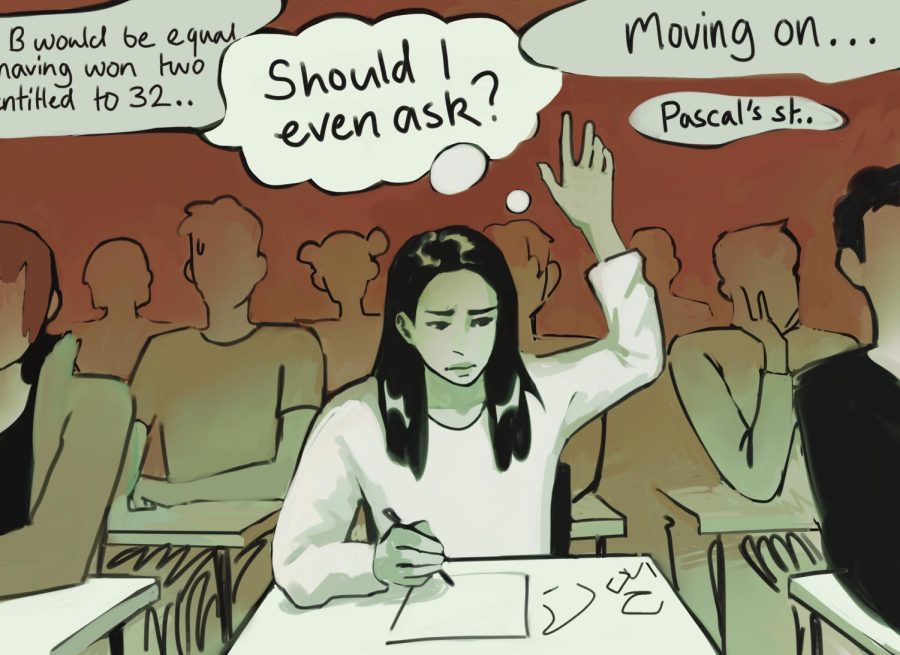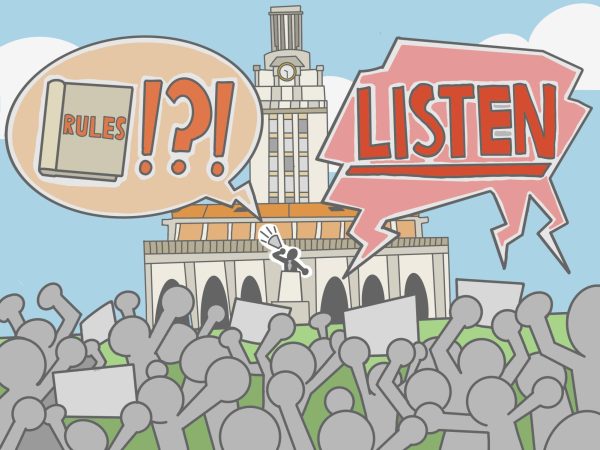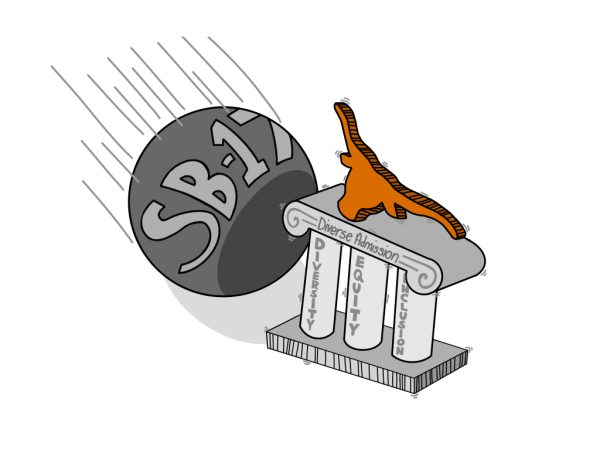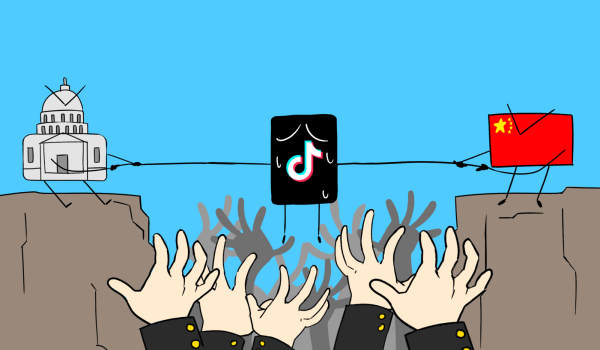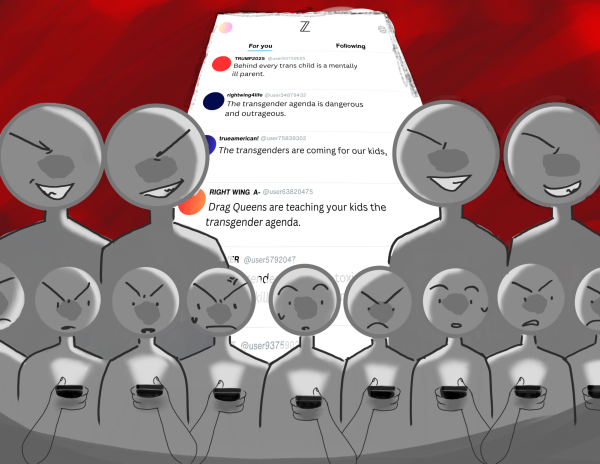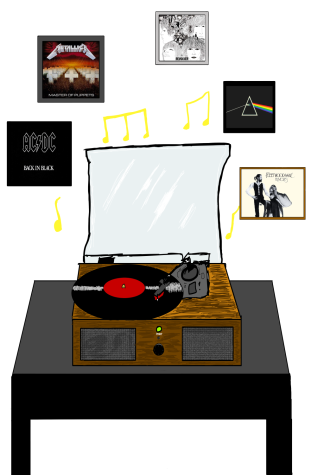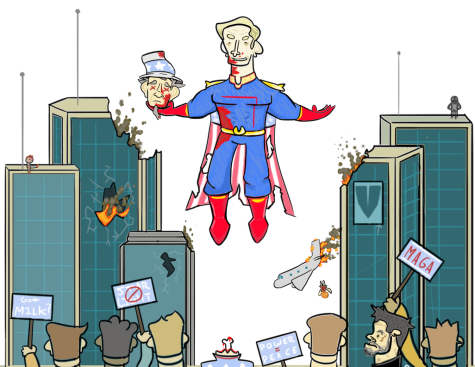Asking for help is critical to overcoming insecurities
In the past, I’ve had trouble asking for help in class. It felt difficult, so a lot of the time I wouldn’t even ask, and would just sit there in self-pity.
I know a lot of other people have had an issue very similar to mine. Sometimes, we can’t ask for help because we think people will judge or think differently of us. This article aims to talk about why asking for help is so hard and try to answer why we feel like this.
First, why do some people feel like asking for help is hard or alienating? In my opinion, it is because we believe that our peers will see us as dumb or weak for asking for help.
I, for one, can say that I was afraid of being perceived as stupid or weak for asking for assistance. No one wants to be thought of as dumb, stupid, or any negative term, so instead of asking for help, they would often rather sit quietly and be stuck. In school, the feeling of being ignorant is heightened by others such as teachers, parents, peers, and friends. This is because we think these people will see us in a negative light for not understanding the topic completely.
These feelings, however, are not exclusive to school and even affect adults today. Mental health has become a large topic in the United States and even around the world.
Asking for help when you have a mental illness is, in my opinion, undeniably difficult. I can say with confidence that asking for help when you have strong emotions, a mental illness, or even if you are just in a bad mood, is hard. I’ve struggled with feelings of anxiety and depression, and even though I have talked about it, I still find it challenging to bring up in conversation, with the people that I’m normally comfortable with, even family or friends. Asking for help when you have depression can give feelings of weakness because, for example, you might be thinking “I can’t help myself, I’m too weak to overcome this without the help of other people.”
Now, why would we feel this way? Well even though I’ve attempted to answer it earlier in this article, the feelings of self-doubt are strong and even debilitating at times. While nothing truly “bad” can come from asking for help, strong feelings of self-doubt can pop up. As I mentioned with asking for help when it comes to mental illness, the feelings are incredibly strong, which can in turn cloud your judgment and lead to poor decisions. I would say that most people, including myself, get better at asking for help as they get older. However, just because the feelings lessen, doesn’t mean they ever really go away.
So once again, why is asking for help difficult? I will only say it’s a variety of issues, but I can say, however, that it depends on the person, situation, and emotions. Some people may have different experiences and someone’s issue could be different from my own. I would say the feelings of self-doubt include but are not limited to, the feeling of being alienated, being dumb, or being weak. Some people may have a much easier time being confident in asking questions while others may not feel so confident.
Well, what about getting help with these issues? Unfortunately, I don’t have all the answers and medical professionals won’t always have them either. However, talking to a therapist and having frequent appointments could benefit those afflicted with mental illness. Talking to parents is the first step on the way to help and recovery. Reach out immediately if you are having a mental health crisis or feel you need help.
Your donation will support the student journalists of Akins High School. Your contribution will allow us to purchase equipment and cover our annual website hosting costs.

Academy: New Tech
Number of Years on Staff: Three years on staff.
Title: Staff Writer
Why do you enjoy being on staff? I like to interact with the people in my class. I also like to write stories about entertainment.
What do you do for fun? I like to play video games of all kinds. Recently I've been really into music mostly rock and metal. My favorite bands are Metallica, Slipknot, and Ghost.
What are your hobbies? Video games and guitar. Recently I've been really into fighting games like Guilty Gear, Street Fighter, Mortal Kombat, and Granblue.
Hopes & Dreams after high school? To go to college and get a degree. I really want to be an optometrist.

Academy: STEM
Number of Years on Staff: First Year
Why do you enjoy being on staff? I like learning new things.
What do you do for fun? I like to read and watch horror.
What are your hobbies? I paint and make digital art.
Hopes & Dreams after high school? I want to work in an art studio and or teach art.


